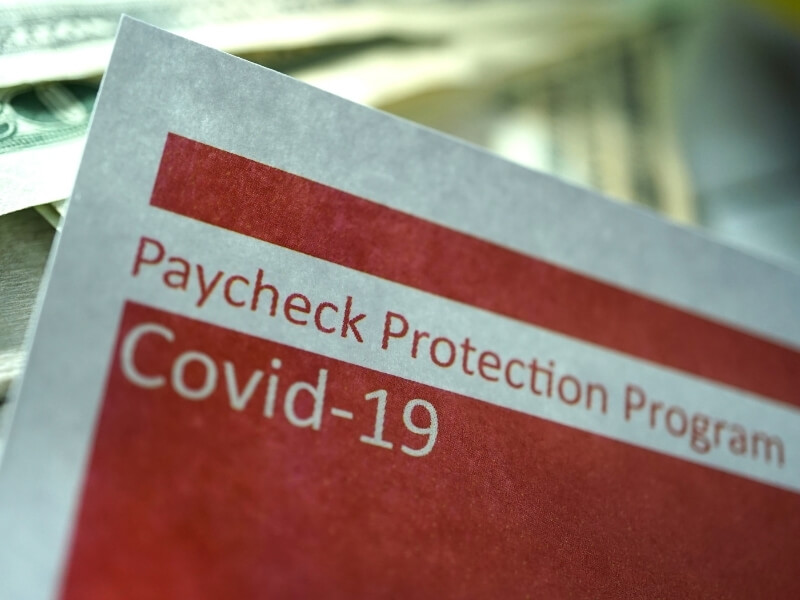
2020 was a historic year. Economies shut down and many of us changed our lifestyles to help protect loved ones. Perhaps you even decided that this was the year to start that community foundation or nonprofit organization. Now that you’ve set up your website and coordinated your services, you’re ready to change the world.
Now it’s been a year and it’s time to pay taxes.
Do nonprofits have to pay taxes? Aren’t they tax-exempt?
Nonprofits – 501(c)(3) – still need to file tax forms. They aren’t taxed like traditional businesses, but they still have to file annual reports to the IRS for regulatory reasons.
The type of form you submit depends on your income and organization classification. This article will provide a brief overview of the nonprofit tax filing process. For other non profit-related tax issues, we recommend this section in this article:Accountants for Nonprofits.
First, Have You Filed for Tax-Exempt Status?
If you are a new nonprofit executive, you might not have registered as a 501(c)(3), the official designation for tax-exempt entities. Simply declaring yourself a nonprofit is not enough. The IRS requires specific forms.
You can file as a 501(c)(3) by using the 1023-Series Application. The IRS also requires you to apply for an Employer Identification Number (EIN) even if you don’t have employees. You can learn more about the Internal Revenue Code Section 501 on the IRS website.
File the Correct 990 Form Based on Income
After you’ve been approved to be a 501(c)(3), you need to determine your nonprofit’s annual income. This number will be based on your gross receipts: donations, program fees, merchandise sales, etc. Most nonprofits fall under these two categories.
Less than $5000: Not required to file
More than $5000 and less than $50,000: File 990-N
Greater than $50,000: File 990 or 990-EZ
Exemptions and Exceptions
If your organization meets any of these criteria, you do not need to file a 990 or will need to file a 990 form different from the ones listed above.
Private Foundation: 990–PF
A private foundation is generally defined as a fund that comes from a single source like a family or corporation. The foundation does not engage the general public for donations or contributions. Check with the IRS or a tax professional to confirm that your entity qualifies as a private foundation.
Group Return Organization: Not required to file
Is your nonprofit part of a larger, parent organization? If so, the parent organization may file for you. If you’re unsure whether you’re part of a group return, contact the umbrella organization and ask whether or not you need to file tax returns.
Religious Organization: Not required to file
A religious organization can include churches, religious schools, missions or missionary organizations.
Government Programs: Not required to file
For a full list of exempt organizations, visit this page on IRS.gov.
When to File the IRS Form 990
For many, tax day is April 15th. This might not be true, however, for your nonprofit. Many nonprofits elect to operate on a fiscal year that’s convenient for them. Depending on the fiscal year you determine, the Form 990 is due on the 15th day of the 5th month after the end of the organization’s taxable year. This means that if your organization follows the calendar year (January 1 – December 31), your Form 990 would be due on May 15th of each year.
Penalties for Failure to File
Filing taxes can be complicated and difficult for many new nonprofit directors. For this reason, it’s important to begin filing early and consult a professional accountant if necessary. If a nonprofit does not file its 990 on time, the IRS will levy fines.
- From IRS.gov: “The Internal Revenue Service will impose a penalty of $20 per day for each day the return is late. The maximum penalty is $10,000, or 5 percent of the organization’s gross receipts, whichever is less. The penalty increases to $100 per day, up to a maximum of $50,000, for an organization whose gross receipts exceed $1,000,000.”
- If an organization fails to submit tax forms for three consecutive years, their tax-exempt status will be revoked.
- The IRS publishes the list of organizations whose tax-exempt status was automatically revoked because of failure to file a required Form 990, 990-EZ, 990-PF or Form 990-N (e-Postcard) for three consecutive years.
Other Questions? Ask a Professional Nonprofit Accountant
There are other exemption status types and each has its own annual filing and Form 990 requirements. It’s important to seek help from a tax professional for your nonprofit tax filing.
At Perry and Associates, we help a variety of nonprofit organizations throughout Ohio and West Virginia. We are members of the WV Nonprofit Association and partner with and sponsor various events held by Marietta College’s Nonprofits Lead.
If you are a new nonprofit director needing tax advice, contact the team at Perry CPAs. We are well-versed in 501(c)(3) compliance issues and can make filing your annual taxes easy and hassle free. Click here to get in touch with one of our associates.





